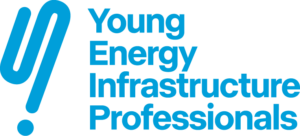
Over the last couple of weeks, thousands of people across Canada, the United States, and the world, have been speaking out against systemic racism and police brutality.
This isn’t an issue which only occurs in the United States – Canadians are all too often lulled into a false sense of living in a multicultural utopia, but the facts show that there is an underlying, systemic problem here as well:
- Canada didn’t close its last black-segregated school until 1983, and the last residential school closed in 1996
- While African-Canadians make up three per cent of the general population, they account for 9 per cent of the federal prison population. While Indigenous peoples make up 5% of the population, they make up 30% of the male prison population and 42% of the female prison population
- Random carding by police (collecting identifying information “arbitrarily,” or based on a person’s race or presence in a high crime neighborhood) wasn’t removed as an official police policy in Toronto until 2017
YPAC’s Vision of the Future holds creating a pipeline industry that is diverse & inclusive as a central tenet, and we recognize that there are systemic gaps in opportunity, advancement and senior leadership for BIPOC, women, persons with disabilities and LGTBQ+ people in the pipeline industry. We believe that young professionals have the power to catalyze change in our industry and in the world at large, and in order to tackle systemic opportunity gaps in the pipeline industry, we will be working to implement the following seven points:
- Meaningful consultation, respectful relationships, free prior and informed consent of Indigenous peoples
- Inclusion of Indigenous peoples and perspectives in YPAC
- Education for YPAC members about the history and legacy of residential schools, UNDRIP, Treaties and Rights, Indigenous law, and Crown duty to consult
- Pipeliners recognize and call out our own biases – conscious and unconscious – to make meaningful, sustainable change
- Addressing systemic gaps in opportunity, advancement and senior leadership for BIPOC, women, persons with disabilities and LGTBQ+ people in the pipeline industry
- Industry and government engaging in two way dialogue with young pipeliners
- Ensuring fair and equitable parental leave. Enabling flexible work accommodations; accounting for the realities of childcare and elder care.
How can we as individuals take on and challenge bias?
Here are some readings we found helpful:
- So You Want to Talk About Race by Ijeoma Oluo
- Policing Black Lives: State Violence in Canada from Slavery to the Present by Robyn Maynard
- 21 Things You May Not Know About the Indian Act: Helping Canadians Make Reconciliation with Indigenous Peoples a Reality by Bob Joseph
An exercise for recognizing and exploring biases:
Biases are normal thought patterns which everyone experiences. An Implicit Bias Association Test (IAT) has the potential to reveal results which may be surprising, or even uncomfortable. Uncovering and bringing awareness to your personal tendencies is a crucial step in self-development. We encourage you to take notes on your results as well as your immediate reactions, and reflect on your findings regularly as you begin to probe your own biases.
This time offers all of us an unprecedented opportunity to observe our surroundings, reflect on our own lives, introspect on our own feelings, and engage with our peers in dialogue. By creating conversation, we can also create and sustain meaningful change which enables our vision of the future to become a reality.
